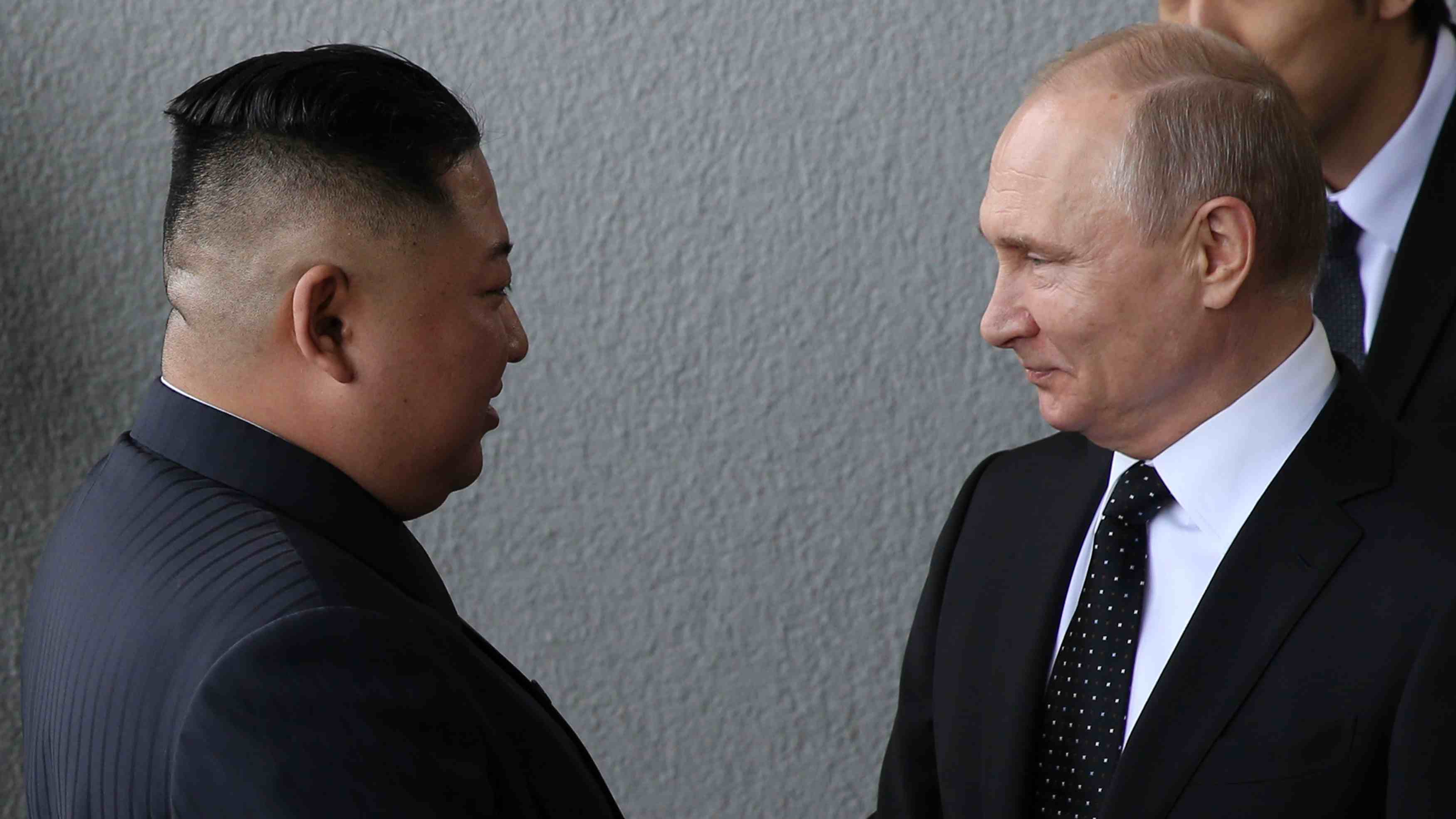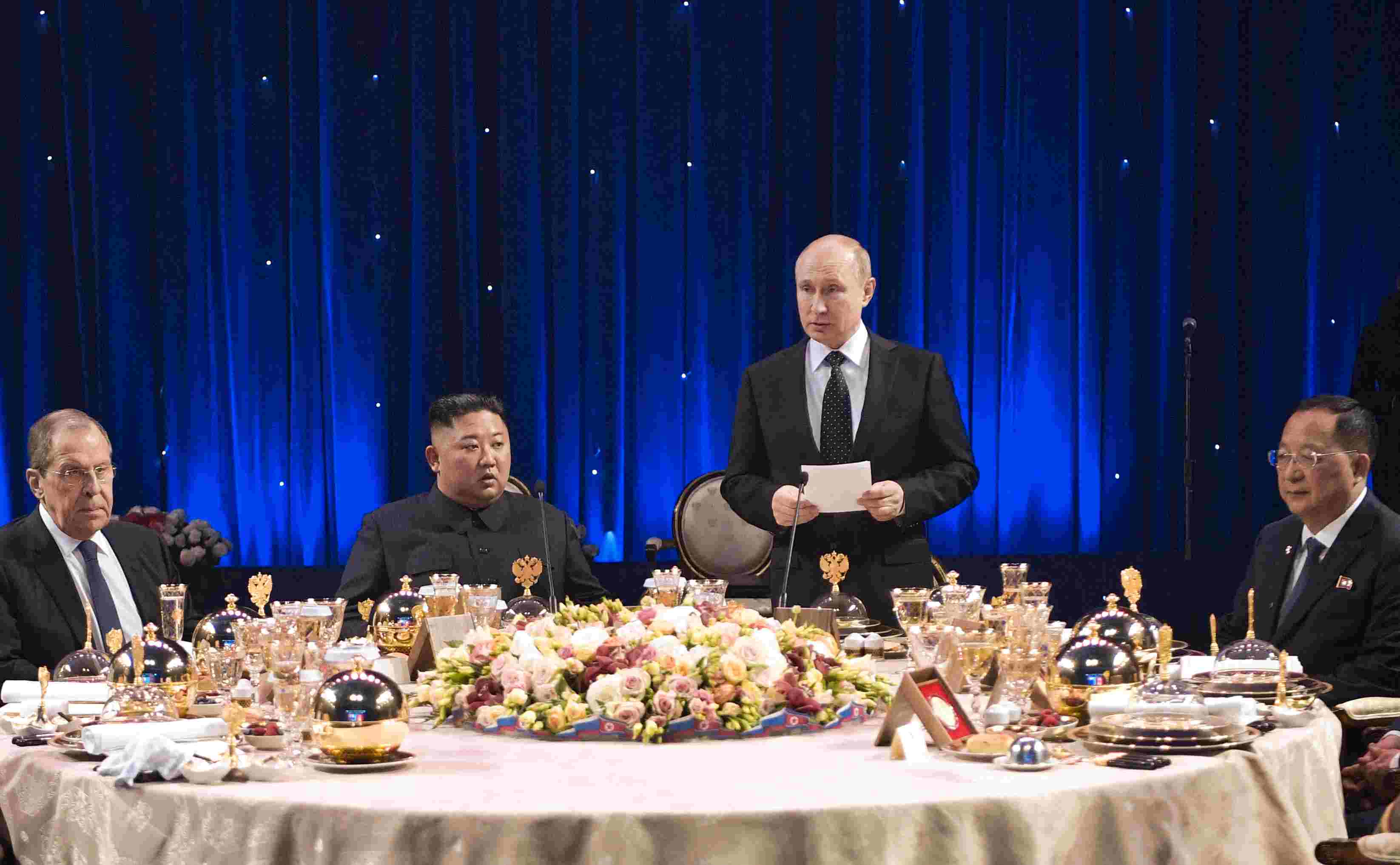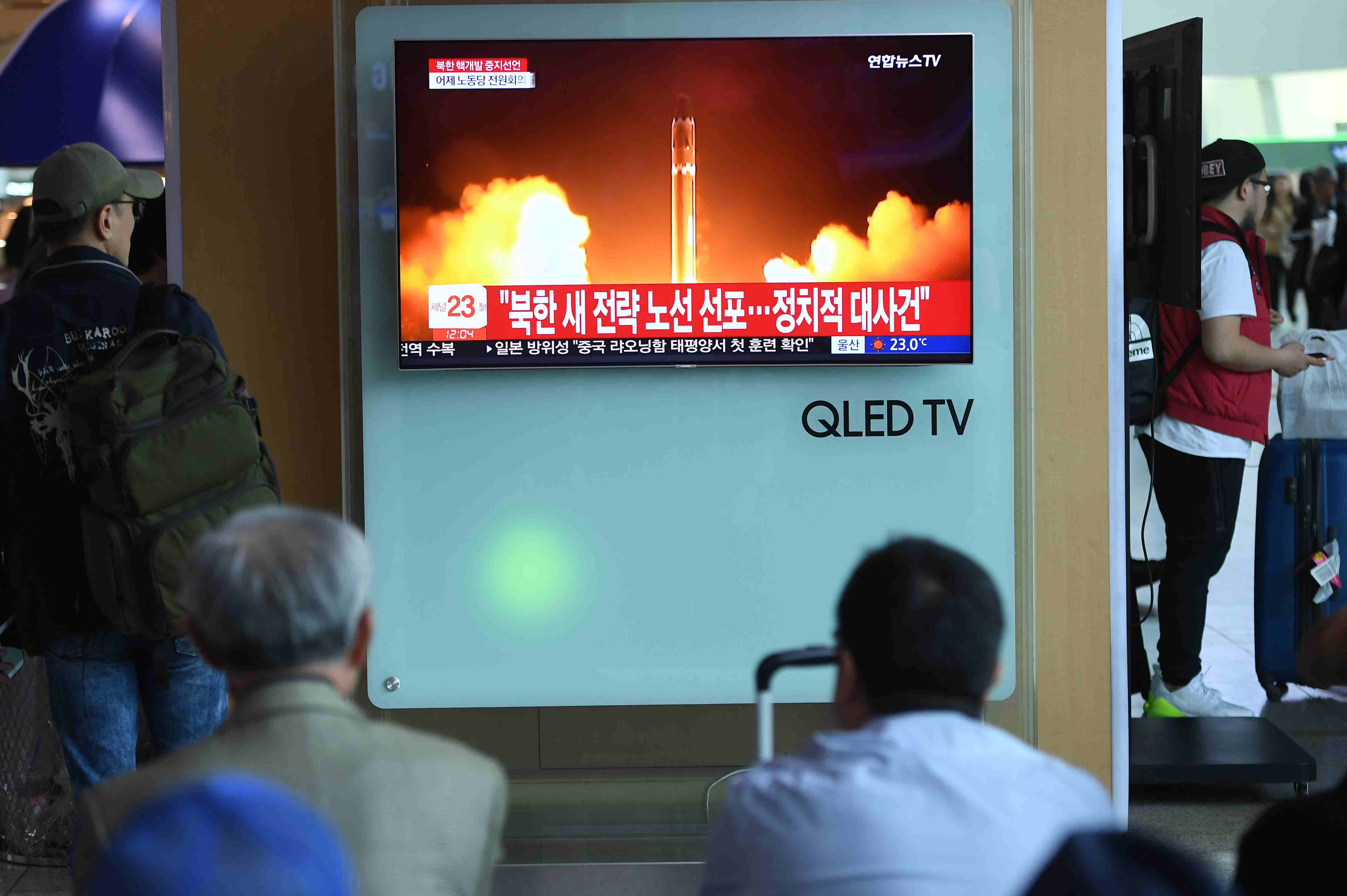
Opinion
10:30, 26-Apr-2019
Pyongyang's tactical pivot to Putin
Tom Fowdy

Editor's note: Tom Fowdy is a British political and international relations analyst and a graduate of Durham and Oxford universities. He writes on topics pertaining to China, the DPRK, Britain and the U.S. The article reflects the author's opinion, and not necessarily the views of CGTN.
Yesterday saw DPRK leader Kim Jong Un wrap up a summit with Russian President Vladimir Putin in Vladivostok in the country's Far East. In the following press conference, Putin stressed a need for "Confidence Building Measures" in the view to securing the denuclearization and peace process on the Korean peninsula in the form of economic cooperation, as well as hinting at future multilateral negotiations in the bid to provide "International safety guarantees" to Pyongyang if the current trajectory of bilateral dialogue fails. The Russian President also indirectly suggested providing sanctions relief through upholding the presence of DPRK expatriate workers within his country, stating there are "options available" and noting "Humanitarian needs."
Kim Jong Un will no doubt be quite pleased with the outcome. By pivoting towards Russia in the midst of a breakdown in talks with the United States, he has created for himself diplomatic and political space to entrench his own position. In the face of "all or nothing" demands from the United States on the matter of denuclearisation, he has been able to obtain support for a more pragmatic "step by step" approach to sanctions relief and denuclearization. While this is not likely to change Washington's demands or position, it does bolster Kim's negotiating hand and in turn, eases the diplomatic pressure on him from the more pro-military factions.

Russian President Vladimir Putin (2nd R) and DPRK leader Kim Jong Un(2nd L), accompanied by officials, attend a reception following their talks at the Far Eastern Federal University campus on Russky Island in the far-eastern Russian port of Vladivostok on April 25, 2019. /VCG Photo
Russian President Vladimir Putin (2nd R) and DPRK leader Kim Jong Un(2nd L), accompanied by officials, attend a reception following their talks at the Far Eastern Federal University campus on Russky Island in the far-eastern Russian port of Vladivostok on April 25, 2019. /VCG Photo
DPRK's foreign policy is built upon the pinnacle of maintaining political independence at all costs, a tenant of the Juche or “self-reliance” ideology. That is the consideration that no large power should be allowed to dominate or gain undue influence over the country.
To make this independent direction feasible, Pyongyang strives to purposefully utilize its strategic position in East Asia and play the interests of the surrounding great powers against each other. In the process of doing so, the DPRK creates political space for itself, striving to negotiate on its “own terms,” attempting to draw out benefits for itself while avoiding being diplomatically cornered, or robustly obligated to any of them.
Not only is such foreign policy logic the innate purpose of the country's nuclear weapons capabilities, but it is also key to understanding the DPRK's negotiations with Washington. Pyongyang wants to talk with the United States on its own terms and refine the relationship between the two countries in a way which is politically satisfactory to them.
The past few years of endless nuclear and missile testing were devoted to that end. It is for these obvious reasons listed that the DPRK is simply not receptive to demands for complete denuclearization before any relief has offered. Such moves are as frequently noted, seen as a capitulation which would leave the country in a position of diplomatic weakness to Washington's favor. Thus, the demands between the two countries are increasingly seen as irreconcilable.

People watch the television news showing file footage of North Korean missile launch, at a railway station in Seoul on April 21, 2018. /VCG Photo
People watch the television news showing file footage of North Korean missile launch, at a railway station in Seoul on April 21, 2018. /VCG Photo
So what does Kim Jong Un do in response to this situation? If Washington is attempting to push him into a box with strident unilateral demands, then his inevitable reaction is to diversify his political options by pivoting to another power, that is Russia.
Thus came the long-awaited Putin-Kim summit yesterday. As indicated in the summit, Putin has his own interests in the Korean peninsula. He announced that he wants to see trilateral economic cooperation between Moscow, Seoul and Pyongyang, building infrastructure from Russia's Far East down through the peninsula and into the South. He also, of course, does not want an expanding U.S military presence near his border.
Given this, by meeting the Russian leader, Pyongyang's "self-reliance" diplomacy has been able to draw out the interests of Russia and create momentum to support their own position. For as noted, the summit revealed that Putin wants a step by step approach to talks consisting of "confidence-building" measures, most specifically in the form of sanctions relief.
In addition, he was, in turn, willing to blame the United States for the breakdown of diplomacy while also being open to toying with certain aspects of sanctions relief. , of course, the sanctions situation is not vindicated at all. Nevertheless, Kim finds his own hand somewhat strengthened as he has more political space and less pressure in facing off American demands. In addition, pro-military hardliners in Pyongyang, strongly opposed to making deep concessions to the U.S, will also be pleased.
Therefore as a whole, the summit is a textbook example of the DPRK's tactical "Juche" diplomacy. If one power will not give it what it wants, rather than capitulating and compromising itself, Pyongyang shows its willingness to look elsewhere, diversify its options and thus expand its own diplomatic space to make decisions according to its own will. Determined not to capitulate to U.S unilateralism, Putin now has offered the country some meaningful incentives to prevent it. Kim Jong Un will undoubtedly see it as a small, but not insignificant coup.
(If you want to contribute and have specific expertise, please contact us at opinions@cgtn.com)

SITEMAP
Copyright © 2018 CGTN. Beijing ICP prepared NO.16065310-3
Copyright © 2018 CGTN. Beijing ICP prepared NO.16065310-3